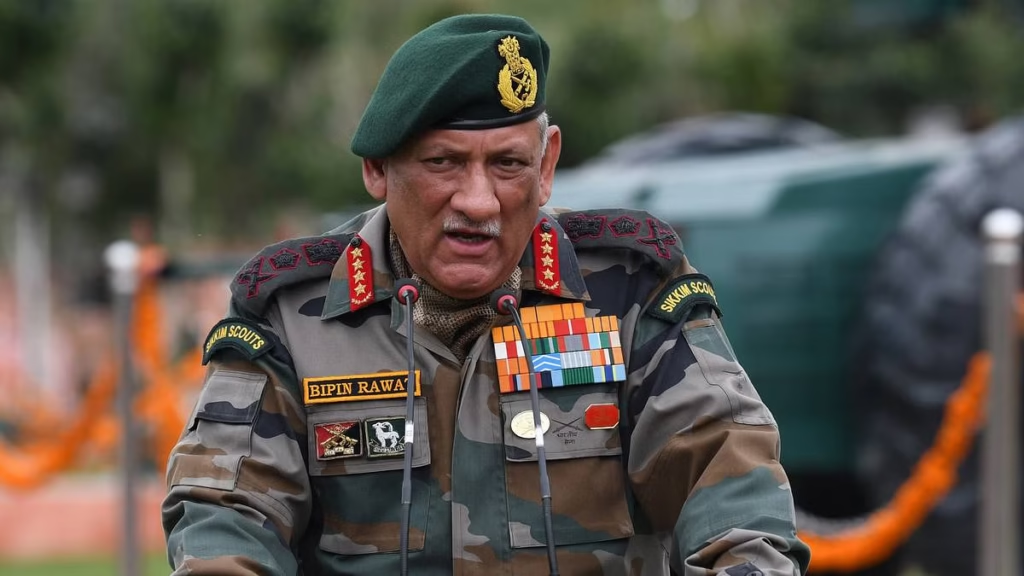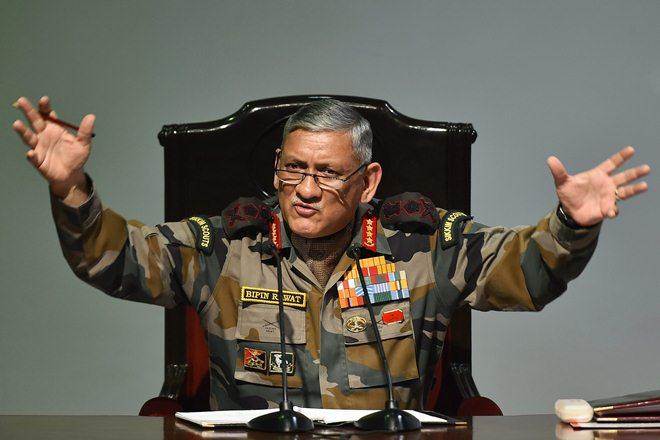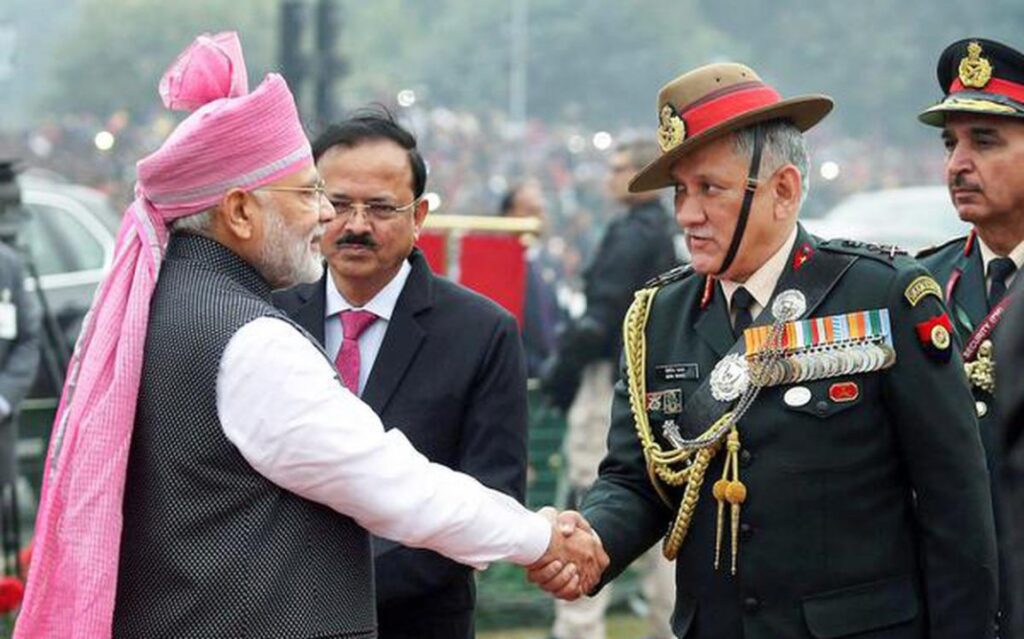New Delhi, May 18, 2025 – As India grapples with growing geopolitical tensions, internal ideological divides, and rising national security concerns, many are revisiting the bold warnings of the late General Bipin Rawat — the country’s first Chief of Defence Staff — whose statements once drew both sharp criticism and deep admiration.
General Rawat, who tragically lost his life in a helicopter crash in December 2021, had repeatedly warned the nation about the emerging threat of a “two and a half front war” — referring to simultaneous challenges from hostile neighbors and internal subversion. At the time, his remarks were dismissed by some as alarmist and even politically motivated. But today, they are being seen in a new light.
“The challenge isn’t just China and Pakistan. The 0.5 front is within. It looks like us, talks like us, and even claims to be us,” Rawat had once remarked during a closed-door strategic forum, highlighting the threat of internal dissent and ideological warfare.
The phrase sparked widespread controversy. His candid style often put him at odds with political leaders, particularly the Congress party. In one instance, a senior Congress leader referred to him as a “Gali ka Gunda” (street thug), triggering a wave of backlash from military veterans and supporters who viewed the comment as disrespectful toward the armed forces.

A Vision Coming True
In the years following his death, the very scenarios General Rawat warned of are increasingly playing out. India faces heightened military stand-offs on its northern borders, a persistently unstable western front, and growing ideological polarization within its own population. Cyber warfare, misinformation, and radical narratives are increasingly being used to weaken national unity — a form of warfare Rawat had long cautioned against.
“This man was so relevant. We miss the visionary leader General Bipin Rawat,” read a recent viral social media post, echoing the sentiments of thousands who now view him as a prophetic figure.
A Soldier of Reforms
General Rawat was not just known for his battlefield prowess, but also for pushing institutional reforms within India’s defence establishment. As the first CDS, he championed the integration of the three armed forces, advocated for the creation of theatre commands, and emphasized indigenous defence manufacturing.
His approach, however, was not without friction. Some within the bureaucracy and political circles found his methods aggressive and his public remarks too direct for a serving military leader. Yet, his defenders argue that his clarity was necessary at a time when India’s defence apparatus required both modernization and strategic alignment.

Legacy in Reflection
Today, as policymakers revisit India’s national security doctrines, many of General Rawat’s ideas are being revived — from structural military changes to combating internal threats through civil-military cooperation and strategic communication.
In a world rapidly evolving with hybrid threats, information warfare, and domestic unrest, General Bipin Rawat’s legacy is no longer just a memory of the past — it is a lens through which many are viewing the present and planning for the future.
Related Reading:
- Who Was General Bipin Rawat? A Timeline of Service
- Two and a Half Front War: What It Means in Today’s India
- CDS Reforms: The Blueprint Left Behind







More Stories
IndiGo Plunges Into Crisis: Questions Over Airline Planning
Asia at Boiling Point: How Weather Is Rewriting the Region’s Future
Maithili Thakur: From Folk Singing Sensation to Rising Political Star